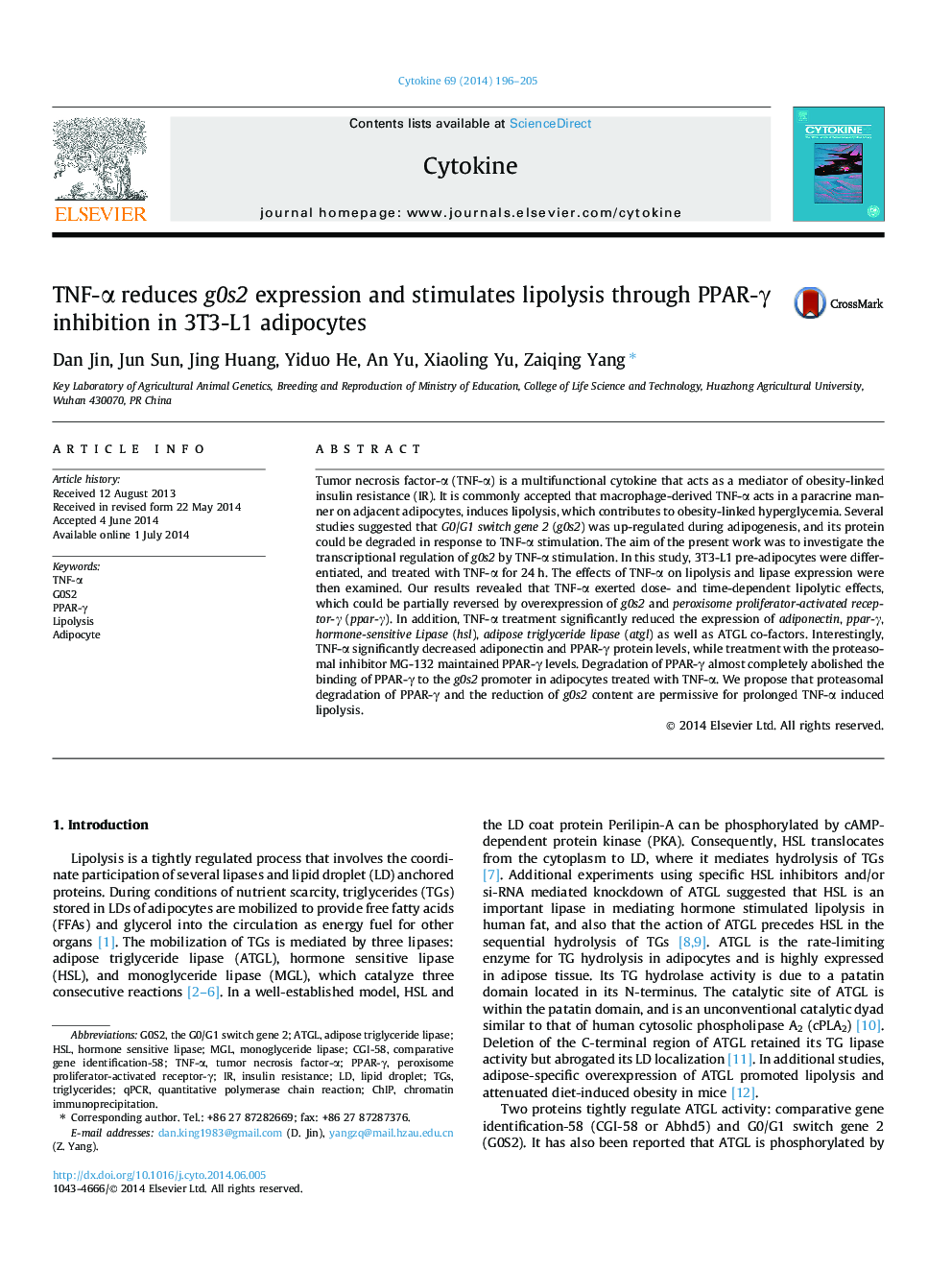| Article ID | Journal | Published Year | Pages | File Type |
|---|---|---|---|---|
| 2794226 | Cytokine | 2014 | 10 Pages |
•G0S2 level is decreased in TNF-α induced lipolysis in mouse adipocytes.•PPAR-γ can up-regulate the g0s2 mRNA expression in adipocytes.•TNF-α treatment depredated the PPAR-γ protein through a proteasomal pathway.•G0S2 is a permissive factor for the TNF-α induced lipolysis.
Tumor necrosis factor-α (TNF-α) is a multifunctional cytokine that acts as a mediator of obesity-linked insulin resistance (IR). It is commonly accepted that macrophage-derived TNF-α acts in a paracrine manner on adjacent adipocytes, induces lipolysis, which contributes to obesity-linked hyperglycemia. Several studies suggested that G0/G1 switch gene 2 (g0s2) was up-regulated during adipogenesis, and its protein could be degraded in response to TNF-α stimulation. The aim of the present work was to investigate the transcriptional regulation of g0s2 by TNF-α stimulation. In this study, 3T3-L1 pre-adipocytes were differentiated, and treated with TNF-α for 24 h. The effects of TNF-α on lipolysis and lipase expression were then examined. Our results revealed that TNF-α exerted dose- and time-dependent lipolytic effects, which could be partially reversed by overexpression of g0s2 and peroxisome proliferator-activated receptor-γ (ppar-γ). In addition, TNF-α treatment significantly reduced the expression of adiponectin, ppar-γ, hormone-sensitive Lipase (hsl), adipose triglyceride lipase (atgl) as well as ATGL co-factors. Interestingly, TNF-α significantly decreased adiponectin and PPAR-γ protein levels, while treatment with the proteasomal inhibitor MG-132 maintained PPAR-γ levels. Degradation of PPAR-γ almost completely abolished the binding of PPAR-γ to the g0s2 promoter in adipocytes treated with TNF-α. We propose that proteasomal degradation of PPAR-γ and the reduction of g0s2 content are permissive for prolonged TNF-α induced lipolysis.
